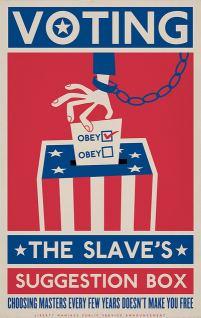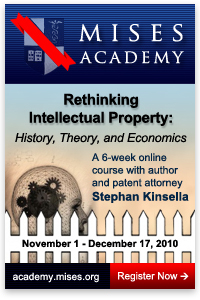Don’t Bet on China: Redux
Business Cycles, Democracy, IP Law, Mercantilism, ProtectionismA Chinese libertarian, Nicolas Dong, who recently did a Mandarin translation of one of my IP articles, recently told me this in an email regarding my earlier post, Don’t Bet on China:
I agree most part of your point of view about China. I believe that after the bust of the current housing bubble and high inflation, there will be much more unrest. The costs to maintain a “stable” social order have exceeded the cost of maintaining the army. Great changes may occur after the Xi Jinpin administration. But democratization will probably make China more socialist, for reasons explained in Hoppe’s Democracy: The God that Failed. There are just too many mobs here. And many social democrats are controlling the media, preaching democracy and equality instead of liberty. Fortunately, some influential media have libertarian-leaning editors or columnists. We also have libertarian and classical liberal university professors. We are trying our best to have a greater influence.
Also, regarding the libertarian perspective on intellectual property and my anti-IP article that he translated, he said:
They [the Chinese libertarians] debated for a while, and now, most libertarians in China are anti-IP.
However its influence is limited since we are just circulating it in our circle, and posting it on websites. Most people in China don’t know what libertarianism is, and they may not capable of catching the idea in the article.… You know, something nice is that those who control the internet here don’t know what libertarianism and the Austrian School are; thus, most of those sites are not prohibited. The Austrian School does have some influence in academia here, albeit mainly Hayekian.
Don’t Bet on China: Redux Read Post »



